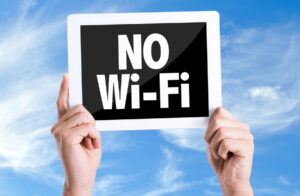It’s often hustle hustle when it comes to event planning. In the frantic pace, planners can often overlook some of the more important facets. There are key mistakes that beginning planners – and even seasoned ones for that matter – tend to make when putting together an event.
These mistakes, while seemingly minor in some respects, can erode the overall quality and have an adverse effect come event day. Know what these mistakes are so you don’t run into troubles that could have easily been prevented.
-
Not Incorporating Event Technology
This is the golden age of the digital era. If your event does not utilize the latest technological innovations, then you are light years behind your competitors. What kind of technology should be included? It should have the items from this list:
- Event app
- Digital signage
- Interactive kiosks
- Wall mapping
- 3D printing
- Social media wall
It doesn’t have to have all of these, but the more you have the better. Heavy use of technology shows to your guests that your company keeps up with the times and is at the forefront of the latest trends. All the technology listed also provides endless creative outlets for really creating that must-needed wow factor.

-
Lack of Wi-Fi
How is the venue’s Wi-Fi access? Does it even have Wi-Fi at all? If it’s the latter, then you need to find another venue. In this day and age, Wi-Fi isn’t one of those things that’s nice to have but not absolutely necessary. It’s practically a must-have.
If the venue is known to have poor Wi-Fi reception, then it’s highly recommended that you have at least one person on your staff that’s somewhat tech-savvy and can resolve the issue.
If the Wi-Fi isn’t working, you can bet that you are going to get more than just a small handful of complaints. Luckily, this is a tech problem that can be avoided by using the latest router on the market.
-
Picking an Incompatible Venue
Just because a venue has an ample amount of space does not automatically make it a suitable place. Sure, budgeting is a concern especially given that the venue is often the single biggest overhead cost. However, some venues just aren’t adequate for certain types of events. A high school gymnasium, for example, may be suitable for a junior high dance or science fair, but it will feel cheap for a technology trade show or other for-profit event.
The following questions should be on your event check list when looking for the ideal venue:
- Does the venue have the right ambiance?
- Is it handicap accessible?
- Is there sufficient parking?
- Is there a kitchen for storing and heating food?
- Does the rental come with janitorial and security services?
- What’s the occupancy limit?
-
Lack of Networking

Events are about promoting brand awareness, but it should equally also be about networking. Your event should encourage a lot of mingling and friendship building between guests and staffers. There are plenty of opportunities for networking. One way is through an ice breaker where guests are broken into groups and are required to collaborate.
Digital signage screens can also include messages encouraging people to interact with other guests and exchanging social media information. If guests leave the event having made a friend or two, then that’s a tremendous gain for them.
-
Hosting the Same Event Year After Year
Events are hardly a one-time thing. Also keep in mind that subsequent events make up mostly of returning guests, so you have to cater to them just as much as you are catering to first-time attendees. With that in mind, returning guests are not going to continuously return if every event is the same as the last. If every event consists of the same booths, exhibits, and presentations, then people are not exactly going to be eager beavers when you announce the next event.
Continuously look for ways to change things up. Consider new speakers, new promotional gear, a different venue, food from a different catering company, and so on.
-
Not Having a Backup Plan

Have you ever heard of Murphy’s Law? It states that anything that can go wrong will go wrong. While it’s a pessimistic way of thinking, it is a good thought to keep in mind. You need a plan B for anything that can go wrong.
What’s the alternative if the slide projector for the presentation isn’t working? What’s the backup if the catering company told you last minute that it couldn’t accommodate your bulk order? You need to have these possible scenarios covered rather than just crossing your fingers that they wouldn’t happen.
-
Not Having Enough Food
Given that the food is included as part of the admittance fee, guests do expect to be fed and fed well. While you don’t have to provide gourmet lobsters and truffles, you shouldn’t be providing cafeteria-quality food either. There also needs to be enough food.
There should be enough so that guests can return for seconds or even be able to take some home in a doggy bag. Speaking of food, there should also be light refreshments served between meals especially if it’s an all-day event. This doesn’t have to be anything fancy; bags of chips, cookies, or sliced fruit will suffice.
-
Not Communicating With the Client
If you’re a third-party event planner, then don’t forget that your client has the final say in every matter. As an experienced planner, you may have ideas that you believe will work better, but don’t forget that every idea has to get the greenlight from the client because at the end of the day, it’s still their event. Once you have a detailed outline, submit it to the client for review.
Also remember to submit updates to the client during the planning phase. This reduces the odds of a miscommunication. After all, you don’t want to settle for Chinese food catering when the client wanted Mexican, or spend a hefty budget on printed flyers when the client wanted everything to be delivered digitally.
-
Not Following Up With the Guests
Your work is far from over when the event ends; in fact, it’s only getting started. Within a few days, today’s event will quickly be yesterday’s news, which is why you need some sort of follow-up within 24 hours of the event.
The best way to do this is through a survey or poll, a thank you message with a coupon code, hosting a live discussion group, or combination of these methods. By having some sort of follow-up, you keep your company fresh in your guests’ minds, which in turn, helps convert them into long-term customers.
There Is no Such Thing as a Mistake-Free Event
Even with the most diligent planning, you will still likely run into unforeseen problems. That is just the general nature of event planning and life in general. The problems, though, can greatly be mitigated during the planning phase when you cover all of your bases.